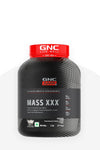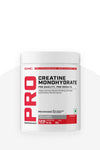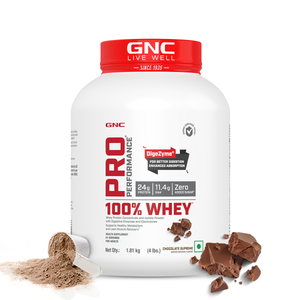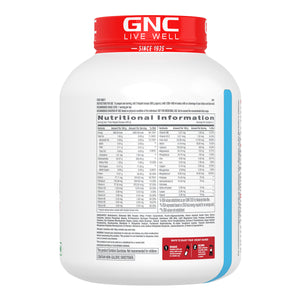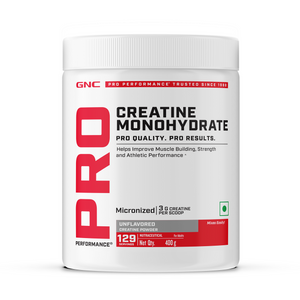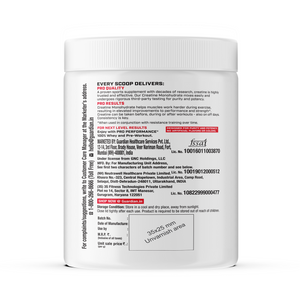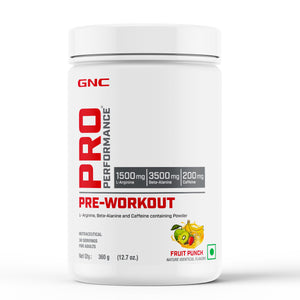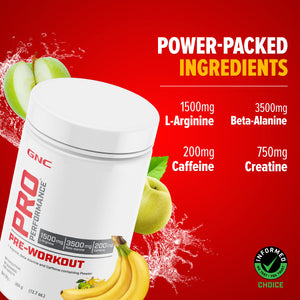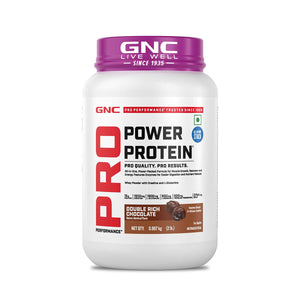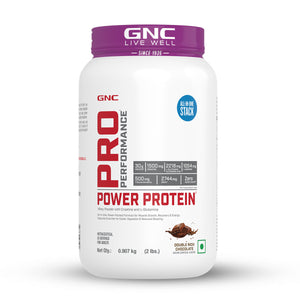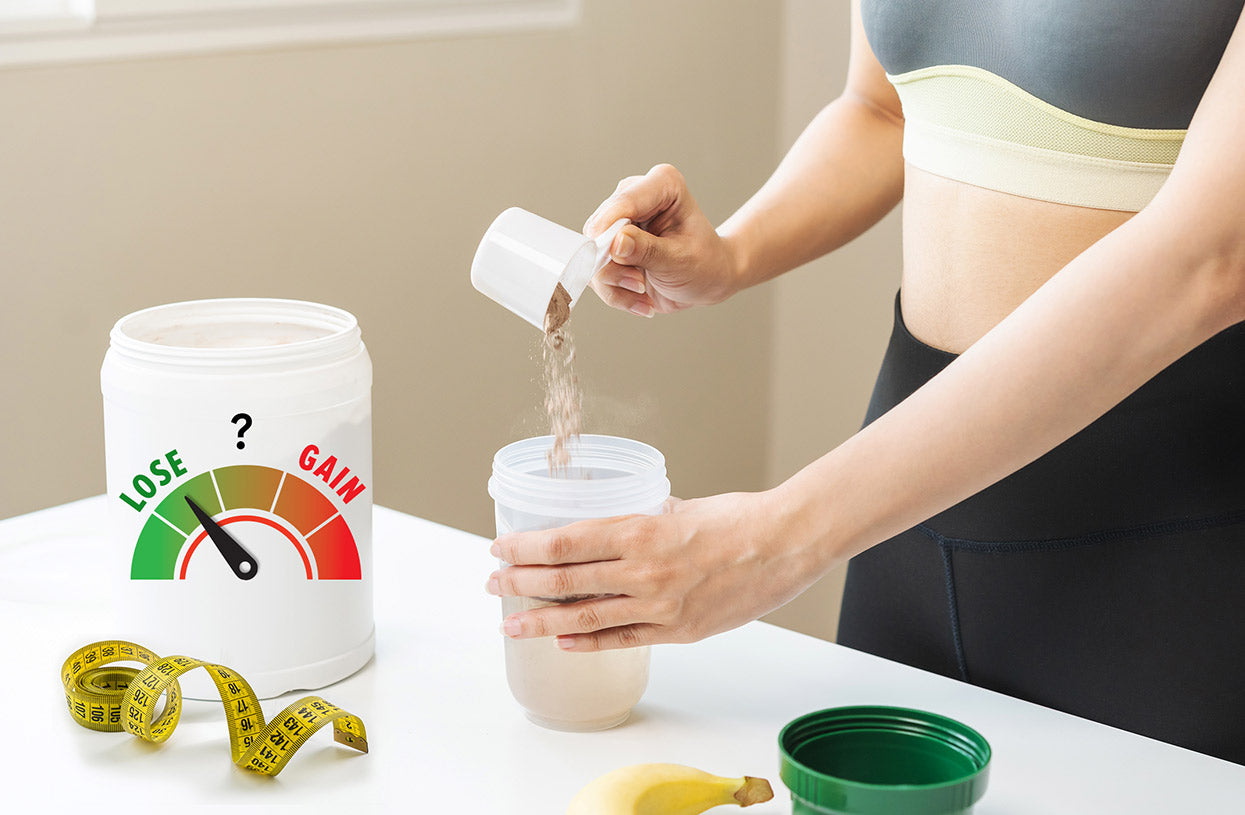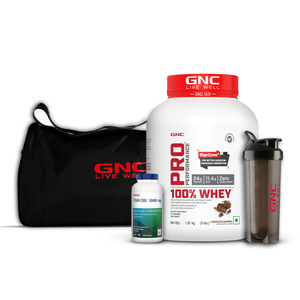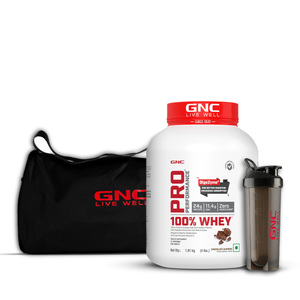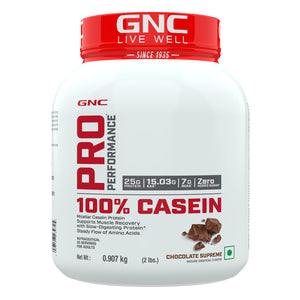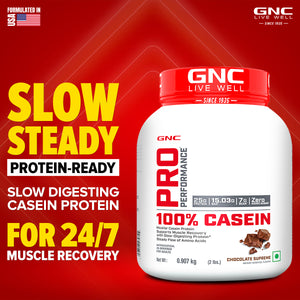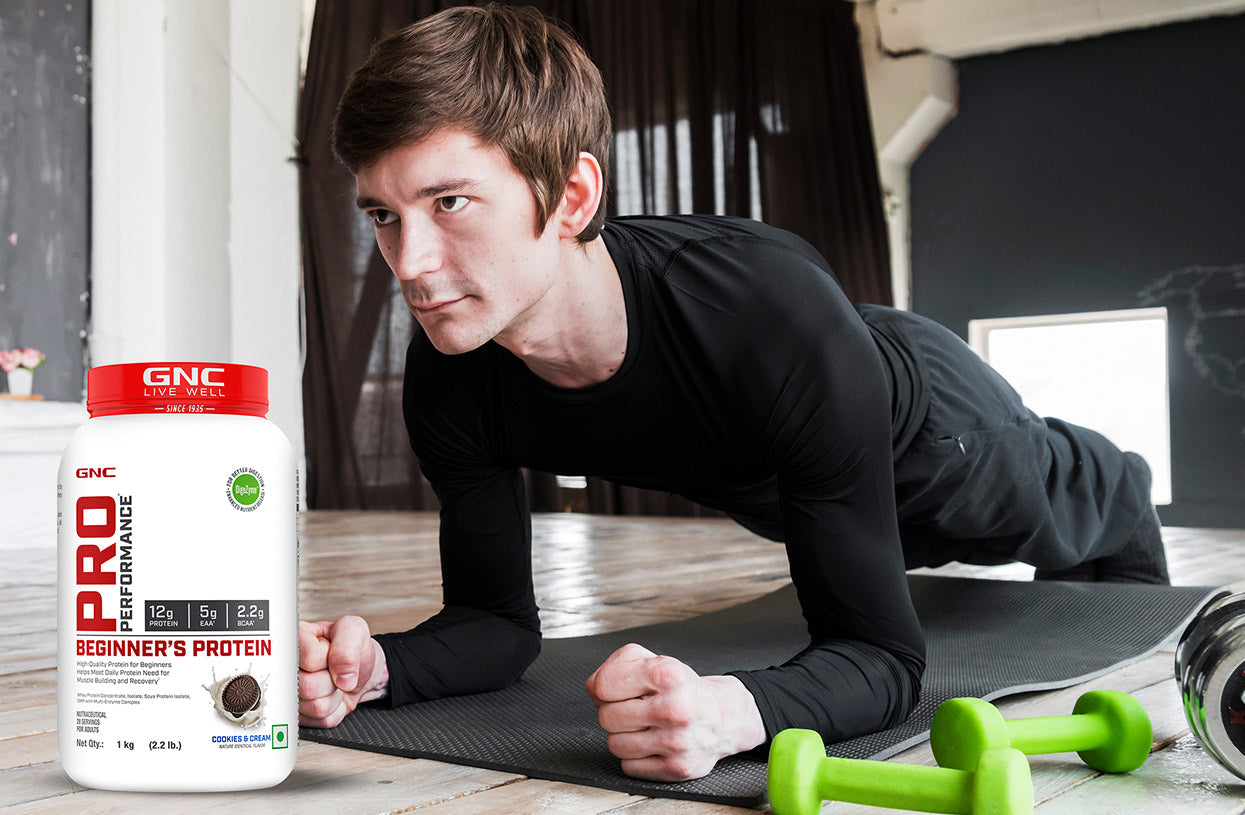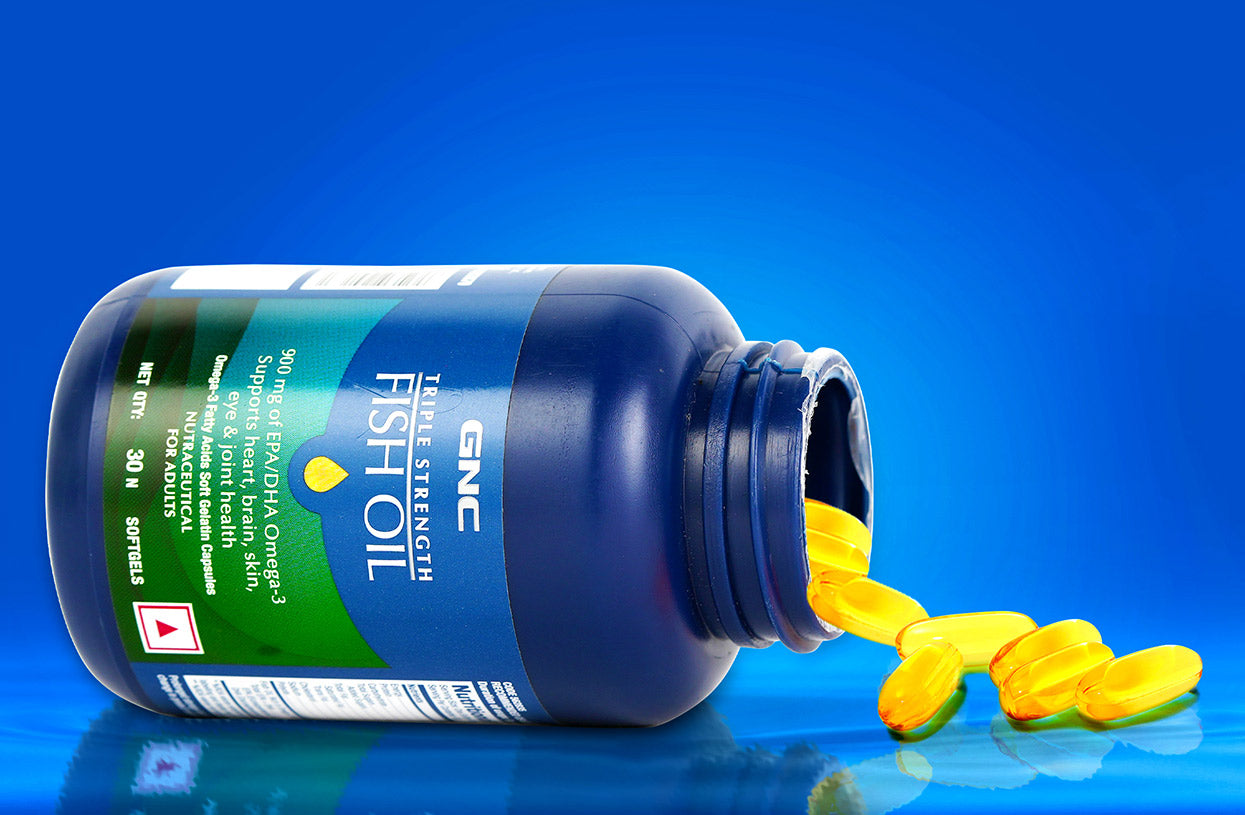Overview
Protein supplements have become a convenient source of good nutrition, especially among fitness enthusiasts and athletes. Being versatile and easy to consume, protein shakes are an attractive alternative to your diet. However, does protein powder cause excessive weight gain? Continue reading to know more about this.
Understanding Protein Powder & Its Role In Human Body
Protein powder is a dietary supplement obtained from animal or plant-based sources such as hemp, milk, soy, or peas. Protein powder is a processed form of protein. It can be mixed easily with other foods or liquids to increase protein intake.
Protein is a crucial component required for various body functions. Let’s now understand the role of protein in the human body.
1. Muscle Repair And Growth
Protein holds a crucial role in maintaining and building muscle mass. After a workout, our muscle tissues undergo breakdown. Proteins step in to repair these tissues, fostering their growth and development.
This is a key aspect of protein's importance that you should be aware of. Some amazing sources of protein include lean meats like chicken and turkey, fish, eggs, dairy items, and plant-based options like beans and lentils.
2. Hormone Production
Protein helps create and control hormones in the body. These include insulin and growth hormones, key to maintaining overall health.
3. Immune Function
Proteins help form antibodies that fight infections. They are crucial for the immune system.
4. Energy Production
While carbohydrates are the main energy source, proteins can also be used when needed.
Types Of Protein Powder
There are many types of protein powder. Each has unique benefits and nutritional profiles. Here are some common ones:
1. Whey Protein
Whey protein, which comes from milk, contains all nine essential amino acids. These amino acids are necessary for various functions, including muscle repair and growth. Whey protein is quickly absorbed, making it potentially good for post-exercise recovery.
2. Casein Protein
Like whey, casein protein also comes from milk. It’s a slow-digesting protein with a steady release of amino acids. So, it may be suitable for bedtime protein sources.
3. Soy Protein
Soy protein is a plant-based protein obtained from soybeans. Besides being a complete protein, it may offer extra health benefits due to isoflavones as they can have antioxidant and anti-inflammatory action, which may help lower the chance of chronic illnesses like heart conditions and certain types of cancer.
4. Pea Protein
Pea protein provides an excellent amino acid profile derived from yellow split peas. However, it is a bit low in methionine, an essential amino acid.
5. Rice Protein
Brown rice is the source of this plant-based protein. Although it is easy to digest, it lacks lysine, another essential amino acid. To ensure you're getting enough lysine, consider pairing your rice protein with legumes or quinoa, which are both high in this amino acid.
6. Hemp Protein
Hemp protein is obtained from hemp seeds and is a nutritional powerhouse. It offers a complete amino acid profile, ensuring you get all the required building blocks for your body. What's more, it's rich in omega-3 and omega-6 fatty acids, which are important for your heart health and brain function.
7. Other Plant-Based Proteins
Other plants like pumpkin, sunflower, or chia seeds also produce protein powders. They offer unique levels of protein and nutrition profiles. For instance, pumpkin seeds are high in magnesium and iron, while chia seeds are a great source of fiber and omega-3 fatty acids.
Does Protein Powder Cause Weight Gain?
Many believe that protein powder leads to weight gain, but is that true? While overeating protein can cause weight gain, the real issue lies elsewhere.
It's important to understand the factors that cause weight gain, such as calorie intake and expenditure, and how to consume protein powder safely.
Relation Between Protein Powder & Weight Gain
Drinking lots of protein alone will not make you gain weight. Instead, weight gain happens when the calories you eat exceed what you burn.
Thus, if you have protein powder in excess or on top of a high-calorie diet without exercising more, you could gain weight. Daily exercise is essential as it helps to burn the excess calories, maintaining a healthy balance.
Protein Shakes For Weight Gain
Looking for a tasty way to fuel your body and support your weight gain goals? Look no further than these five best protein shakes recipes.
Each one offers a unique blend of ingredients packed with protein, healthy fats, and nutrients to keep you energized throughout the day. These protein shakes for women are very beneficial.
1. Chocolate Peanut Butter Delight: Indulge in a classic flavor combination with this creamy protein shake. Greek yogurt provides a protein punch, while peanut butter adds healthy fats and muscle-building protein. Cocoa powder and honey create a rich chocolate taste with a touch of sweetness. Stay on track with your weight gain goals while satisfying your sweet tooth with this gym protein shake.
2. Triple Berry Boost: This vibrant smoothie is packed with antioxidants and protein. Pasteurized egg whites provide a protein boost without affecting the flavor, while fresh or frozen berries add a delicious burst of sweetness and antioxidants. Orange juice rounds out the flavor profile with a touch of citrus. This smoothie is a healthy way to start your day.
3. Green Goodness with Greek Yogurt: Don't let the green color fool you! This protein smoothie is a delicious and nutritious option. Full-fat Greek yogurt serves as the protein base, while spinach offers a boost of vitamins and minerals. You can also be creative – add your favorite fruits and veggies to customize the flavor and nutrient profile to your liking.
4. Coffee Kickstart: Craving a caffeine boost and a protein hit? This coffee protein smoothie is your answer! Cold coffee and chocolate protein powder combine to create a delicious and energizing drink. The added cocoa powder enhances the chocolate flavor, while almond butter provides healthy fats and protein. Chia seeds add a touch of texture and fiber. This smoothie is ideal for a pre-workout pick-me-up.
5. Apple Cinnamon Hemp Heart Powerhouse: This smoothie is a symphony of comforting flavors and powerhouse ingredients. Apples and cinnamon create a classic taste combination, while rolled oats add complex carbohydrates for sustained energy. Hemp hearts, almond butter, and chia seeds contribute healthy fats and protein.
A Medjool date provides natural sweetness, and vanilla extract adds a touch of warmth. This smoothie is a filling and satisfying option, perfect for a post-workout refuel or a healthy snack.
No matter your taste preference , there's a weight-gain smoothie out there for you! Experiment with these recipes and find your favorites. Remember, consistency is key. By incorporating these nutritious smoothies into your daily routine, you can fuel your body effectively and support your weight gain journey.
Now, a question arises: When to drink protein shake? Well, you can consume your protein shake before or after your workout.
Factors Influencing Weight Gain
Several factors are at play when it comes to gaining weight. Understanding them may help guide your protein powder usage.
1. Protein Consumption Is Proportional To Muscle Growth
You should consume protein for your body’s muscle growth needs. Consuming excess protein without providing the body with adequate stimulus for muscle growth through resistance training can contribute to weight gain if the excess calories are not expended. Always consult your doctor before you consume protein powder, and also discuss with them how much protein powder to consume.
2. Lack of physical activity
A sedentary lifestyle leads to weight gain because your body uses less energy with less activity. Daily physical activity helps you burn calories and maintain a healthy weight.
3. Caloric Surplus
When you eat more calories than your body needs, you gain weight. Suppose you have protein powder and eat a balanced or high-caloric diet on top of it without accounting for the extra calories. In that case, you may store energy as fat and gain weight.
4. Protein Powder & Weight Loss
Many think protein powder causes weight gain. However, research shows that consuming protein-dense supplements may promote weight loss when consumed by energy output being more than energy input. This effect may be due to the following.
5. Increased Metabolic Rate
Protein needs more energy to digest than carbs or fats. This may lead to a higher resting metabolic rate, supporting weight loss.
6. Preserving Lean Muscle Mass
When restricting calories to lose weight, you may lose muscle and fat. Having enough protein may help preserve lean muscle mass.
7. Satiety & Appetite Control
Protein increases feelings of fullness compared to carbohydrates or fats. This may help keep appetite in check and reduce overall calorie intake.
Combining Protein Powder Into A Balanced Die
Here are some tips on ensuring a balanced diet that includes protein powder and whole-food protein sources. When used in moderation, protein powder can be a convenient and effective way to supplement your protein intake.
It's particularly beneficial for those with high protein requirements, such as athletes or individuals recovering from an injury.
Whole Food Sources Of Protein
Including various whole-food protein sources ensures you get all the necessary nutrients. Some great choices include:
1. Lean meats
Choose lean meats like skinless chicken breasts, turkey, and lean beef or pork cuts. These provide essential amino acids without excessive fat.
2. Fish
Fishes such as salmon, tuna, and mackerel are rich in protein and heart-healthy oils. They are a good option for your protein needs.
3. Legumes and beans
Lentils, black beans, chickpeas are some top-notch plant-based protein sources. They also provide fiber, vitamins, and minerals.
4. Nuts and seeds
Almonds, walnuts, chia, and hemp seeds are just a few examples of protein-rich nuts and seeds that offer healthy fats and various nutrients.
5. Dairy products
Low-fat milk, yogurt, and cheese strike a good balance of protein, calcium, and other nutrients.
Conclusion
Protein powder, when used in conjunction with a balanced diet that includes whole food or protein sources, can be a valuable tool in meeting your daily protein needs. By dispelling the misconception that protein powder leads to weight gain, we can better understand the benefits it can provide, such as supporting muscle growth, recovery, and even weight loss, when used correctly.
It's important to note that protein powder, when added to a high-calorie diet without physical activity to burn excess calories, can lead to weight gain. Always remember to consume protein powders in moderation.
While they can be a beneficial addition to your diet, it's important not to overdo it. Prioritize whole food sources whenever possible and consult with a healthcare expert or dietitian to determine the ideal protein requirements and supplement strategy for your unique needs.
Frequently Asked Questions
1. Do protein shakes cause weight gain?
Protein contains calories, so consuming too much can lead to weight gain. Taking protein shakes along with your usual diet can lead to weight gain if you are not eating less calories or exercising.
2. Is it OK to drink protein shakes when trying to lose weight?
Protein is an essential nutrient for weight loss. It may support a healthy metabolism and reduce your appetite if you consume enough protein.
3. Are protein shakes bad for belly fat?
No, according to studies, protein shakes can help you decrease your body weight.
4. Will you gain weight if you drink protein shakes and don't workout?
Without exercise, your body might not use the extra protein from the shakes well. This could lead to issues like weight gain or lack of muscle strength.
5. Will I gain weight if I drink a lot of protein?
Protein contains calories, eating too much can make it harder for you to lose weight. This can happen if you consume protein shakes with your usual diet and you're not eating fewer calories or exercising.
Popular Search Terms
Top 5 Benefits of Creatine | Types of Workouts in 2024 | What Is The Importance Of Physical Fitness | What Is The Impact of Multivitamins On Your Body | The Best Strength Training Exercises for Beginners | What Is Whey Protein and How Does It Work | Sukh ‘The King of Punjab's Johal: His Journey to Fame | Benefits of Zumba We Bet You Didn’t Know! | Pawan Gupta: The Indian Air Force Serviceman and the Sanda Fighter | Pawan Hi-Flyer Sehrawat - The Present and Future of India's Kabaddi | Bikramjeet Singh: Here Everything You Wanted to Know About Biki Singh - India's first classic physique | All You Wanted to Know About the 'Khali' of Delhi Police Narender Yadav | Everything You Need to Know About Deepak ‘The Indian Rock’ Nanda | Best Fruits for Weight Loss in 2024 | What Does Pre-Workout Supplements Do? | 5 High-Calorie Foods for Weight Gain | Everything You Need To Know About Collagen | Protein Powders For Beginners



